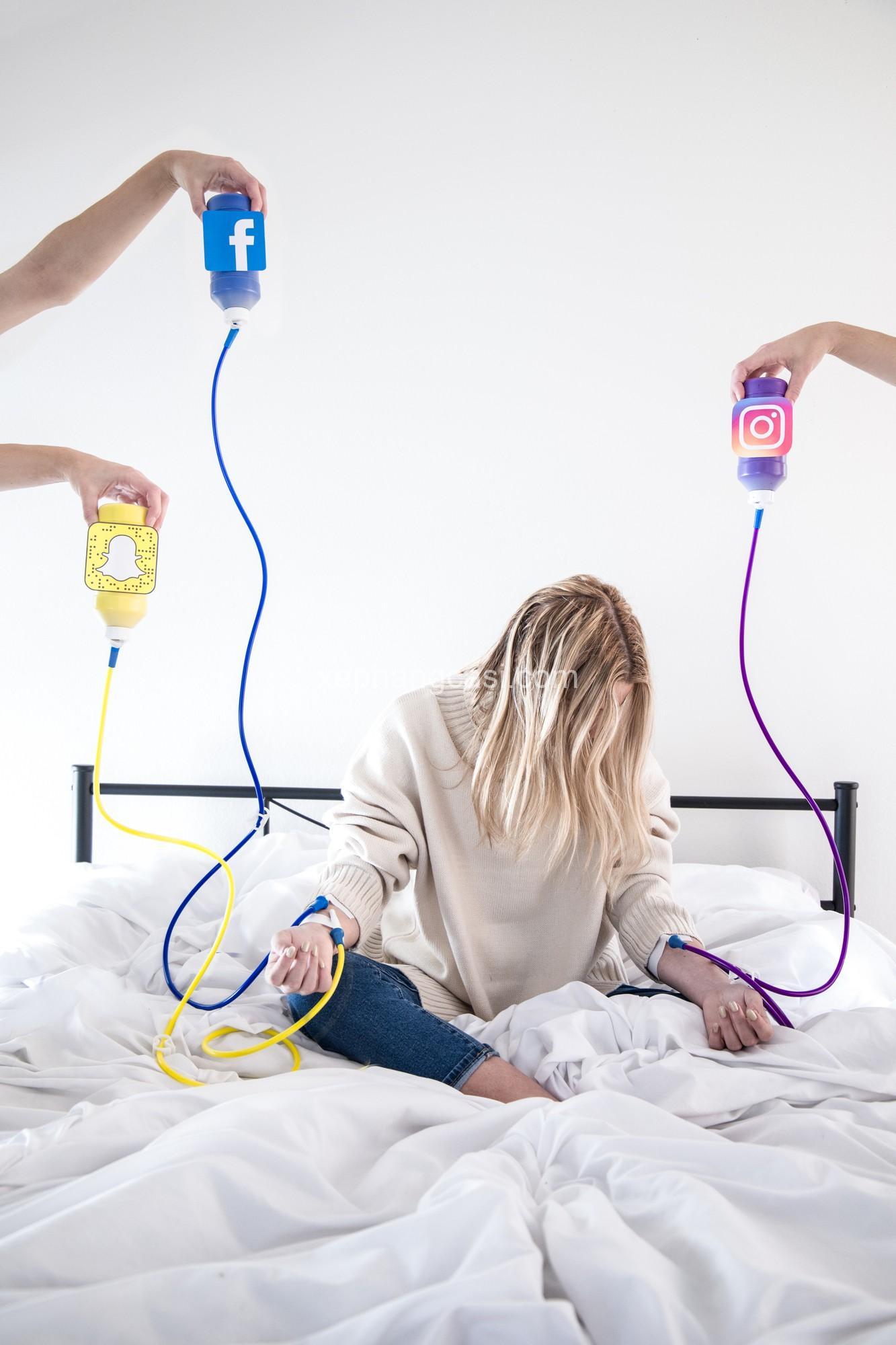Experience with K-pop idols
Idol Media Portrayal: Impact, Authenticity & Fan Culture
Idol Media Portrayal: Impact, Authenticity & Fan Culture. In today’s article, xephangcasi.com will explore with you in the most detailed and complete way. See now!
Understanding the Impact of Media Portrayal on Idols
The way idols are presented in the media has a profound influence on how we perceive them and their lives. From television shows and magazines to social media platforms, media acts as a powerful lens through which we view these individuals. This lens, however, often distorts reality, presenting idealized images and unrealistic expectations that can have both positive and negative consequences.
The Power of the Media Lens: Media plays a significant role in constructing narratives around idols, creating a specific image that resonates with the public. This image often emphasizes a curated, flawless persona, showcasing their talent, charisma, and beauty, while downplaying or neglecting their human complexities. As Susan Elizabeth Rodriguez, I believe that this focus on “idealized images” can create a disconnect between the actual person and the perception of them, which can be both empowering and detrimental.
For instance, a popular K-Pop group’s music video might showcase extravagant sets, elaborate choreography, and perfectly styled members, creating an impression of effortless perfection. This image, while visually appealing, can foster unrealistic expectations about what it takes to achieve success in the industry, potentially impacting fans’ self-esteem and body image.
The Double-Edged Sword: Positive and Negative Effects of Media Portrayal: While media portrayals often present a glamorous and aspirational facade, they can also create pressure to achieve unattainable perfection. This pressure can manifest in various ways, from emphasizing specific physical attributes to promoting a relentless work ethic that can be detrimental to mental well-being.
On the positive side, media can amplify the positive aspects of idol culture, promoting inspiration and entertainment through their music, performances, and personalities. However, the potential for negative effects cannot be overlooked. The constant scrutiny of media can lead to objectification, exploitation, and the creation of unrealistic beauty standards that can be harmful to both the idols themselves and their fans.
The Impact on Mental Health and Self-Esteem: The idealized images often presented in the media can have a significant impact on fans’ self-esteem and mental health. This is particularly true for young people who are more susceptible to the influence of media and social media. When constantly bombarded with images of seemingly perfect individuals, it’s easy to feel inadequate or insecure about oneself.
It’s important to remember that the image presented in the media is often a carefully crafted representation, not a reflection of reality. It’s crucial to develop a critical eye and understand that the pressure to achieve perfection is often unrealistic and damaging.

The Need for Authentic and Realistic Representations
The need for more authentic and realistic representations of idols in the media is crucial. It’s time to move beyond the glossy facade and acknowledge the complexities of their experiences, showcasing their vulnerabilities, struggles, and human qualities.
Beyond the Glitter and Glamour: Embracing the Human Element: The media should strive to portray idols as human beings with flaws and imperfections, recognizing that this is what makes them relatable and inspiring. It’s important to acknowledge that idols are individuals with their own unique experiences, struggles, and aspirations.
By showcasing this human side, we can foster a more genuine connection between idols and their fans, promoting empathy and understanding. It’s important to remember that vulnerability is not a weakness but a sign of strength and resilience, and it can be empowering to see idols embracing their humanity.
Diversity and Inclusion: Reflecting the Real World in Idol Portrayals: The idol industry, like any other industry, should reflect the diversity of the world around us. This means portraying idols from different backgrounds, ethnicities, and cultural identities, fostering a more inclusive and representative portrayal.
Media should strive to showcase the beauty and richness of diversity, promoting a more nuanced understanding of the world and challenging stereotypes. It’s important to challenge the homogenization of the idol image and represent the diverse range of individuals who contribute to this vibrant and exciting industry.
The Power of Authenticity: How Realistic Portrayals Shape Fan Culture: Authentic portrayals can foster healthier fan relationships and create a more supportive community. By showcasing idols’ vulnerabilities and struggles, we can promote empathy and understanding among fans, encouraging a more positive and respectful fan culture.
When fans see idols embracing their flaws and imperfections, they are less likely to engage in harmful behaviors such as online harassment or unrealistic expectations. Realistic portrayals can encourage critical thinking and promote a more balanced understanding of the idol world, fostering a more mature and respectful fan base.
Navigating the Intersection of Idol Culture and Media
The intersection of idol culture and media is a complex and multifaceted landscape, demanding careful consideration and a commitment to ethical practices. Fan culture plays a crucial role in shaping how idols are perceived, while media has a responsibility to portray them ethically and responsibly.
The Role of Fan Culture in Shaping Idol Perception: Fan communities have a significant influence on the perception of idols. Fans create and share content, engage in discussions, and contribute to the overall narrative surrounding their favorite idols. Their passion and dedication often shape the conversation around idols, influencing their image and promoting their success.
However, it’s important to acknowledge the potential for negative aspects within fan culture. Online harassment, obsessive behavior, and unrealistic expectations can negatively impact both idols and the fan community as a whole.
The Media’s Responsibility: Ethical Considerations in Portraying Idols: Media outlets have a responsibility to portray idols ethically and responsibly. This includes avoiding exploitation, objectification, and sensationalized reporting that can be harmful to their well-being. Media should strive to present a balanced and nuanced picture of idols, acknowledging their complexities and promoting respectful interactions.
It’s crucial for media outlets to uphold ethical standards and prioritize the well-being of the individuals they are covering. This responsibility extends to promoting responsible and respectful fan engagement, discouraging harmful behaviors and fostering a positive and supportive fan community.
Looking Ahead: The Future of Idol Representation
Moving forward, it’s essential to foster a shift towards more realistic and authentic portrayals of idols in the media. This requires a concerted effort from industry professionals, media outlets, and fans alike.
Promoting Change: Encouraging More Realistic and Authentic Portrayals: Industry professionals can play a significant role in promoting realistic and authentic portrayals by emphasizing human experiences, fostering diversity and inclusion, and advocating for ethical media coverage.
Media outlets can promote positive change by adopting a more nuanced approach, focusing on showcasing individuals’ complexities, and prioritizing ethical and respectful representations. Fans can also contribute to this shift by demanding more authentic portrayals, promoting respectful online interactions, and supporting initiatives that advocate for positive change.
A Call to Action: Fostering a Culture of Respect and Authenticity: We need to actively engage in critical thinking about media portrayals, advocating for more balanced and realistic representations. This includes supporting initiatives that promote positive portrayals, encouraging ethical media coverage, and fostering a culture of respect and authenticity within the idol world.
By embracing a more nuanced and realistic understanding of idols, we can foster a healthier and more supportive environment for both the individuals and their fans.
Conclusion:
I hope this article has provided a comprehensive exploration of the complex relationship between idol portrayal and media representation. It’s important to stay engaged with these issues, promoting respectful and authentic portrayals, and supporting initiatives that encourage positive change.
For further information and resources, I encourage you to visit xephangcasi.com and explore our diverse range of content. Share your thoughts and insights in the comments below, and let’s continue this conversation together!
What are some of the most common tropes or stereotypes used in media portrayals of idols?
Stereotypes:
- The Perfect Idol: Often portrayed as flawless, talented, and always charming, with little to no personal struggles.
- The Rebellious Idol: Often depicted as edgy, outspoken, and sometimes even rebellious, challenging the typical “perfect” idol image.
- The Innocent Idol: Often presented as young, pure, and innocent, often associated with sweetness and lightheartedness.
How can the media portray idols in a more realistic way?
- Showcase their personal lives and struggles: Highlight their everyday experiences, challenges, and personal growth.
- Focus on their individuality and diverse personalities: Present them as unique individuals with varied talents and perspectives.
- Emphasize their human side: Acknowledge their flaws, imperfections, and vulnerabilities, making them more relatable.
- Promote diversity and inclusion: Represent idols from various backgrounds, ethnicities, and cultural identities.
What are the potential negative consequences of unrealistic portrayals of idols?
- Unrealistic beauty standards: Can lead to body image issues, self-esteem problems, and disordered eating.
- Pressure to achieve perfection: Can contribute to stress, anxiety, and mental health issues.
- Objectification and exploitation: Can diminish their individuality and reduce them to objects of desire.
- Unrealistic expectations: Can set unrealistic goals for fans, leading to disappointment and disillusionment.
How can fans contribute to more realistic and authentic portrayals of idols?
- Support independent media outlets and creators: Promote platforms that focus on ethical and respectful representation.
- Engage in constructive criticism: Challenge harmful stereotypes and advocate for more realistic portrayals.
- Encourage critical thinking: Promote a healthy skepticism towards idealized media images.
- Promote positive fan culture: Foster a supportive and respectful community, discouraging harmful behaviors like online harassment.
